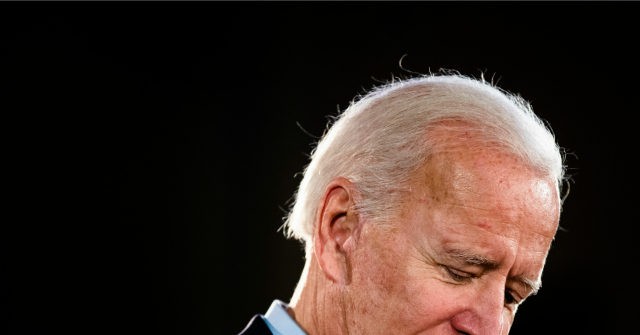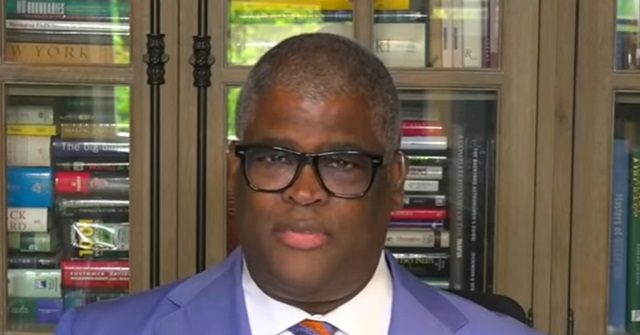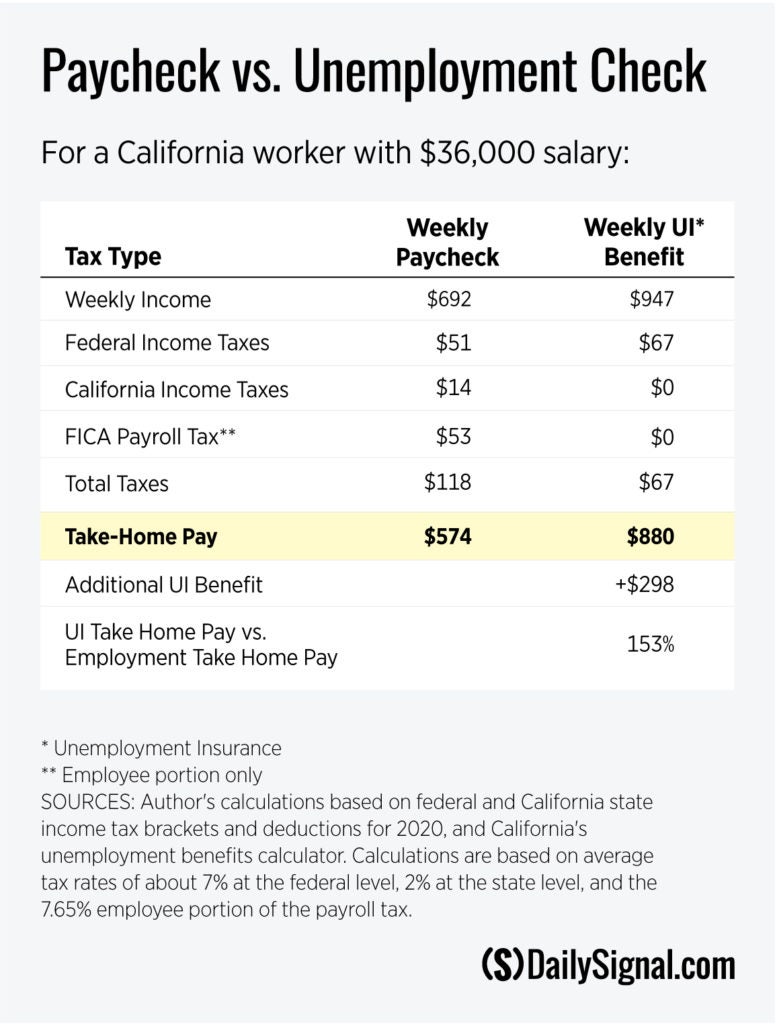With COVID-19 forcing numerous Democratic state primaries to be rescheduled, and with the possibility of a virus resurgence in the fall, many in the media are beginning to focus their attention to a pandemic general election.
One of the ideas being bandied about for November 3 is mail-in voting.
While several states already run entirely mail-in voting processes, and others provide ways to obtain absentee ballots for a variety of reasons, a nationwide mail-in election would be a stunning undertaking.
Many progressives argue for mail-in voting due to ease of use and its potential for increased participation, and many conservatives argue against it because of the generally lax security protocols surrounding the method.
In light of this ongoing debate, The Daily Wire recently spoke with Catherine Engelbrecht, founder and president of True the Vote, an organization “dedicated to election integrity,” according to its official website.
In the interview below, Engelbrecht discusses voter fraud, mail-in security protocol, what certain states are reportedly doing to make mail-in access incredibly easy to obtain, and much more. If you would prefer to listen to the interview rather than read it, the audio can be found at the bottom of this piece. Time stamps will be provided in writing after each question.
DW: Is there evidence of widespread mail-in voter fraud such that it could alter the outcome of a state or national election? (0:03)
ENGELBRECHT: Yes. One that comes to mind – maybe the most notorious of late – happened in 2008 when Al Franken was working to defeat the incumbent Norm Coleman for a Senate position in Minnesota. After months of recounts and new mail-in ballots being discovered each time – each time benefiting Al Franken – the margin finally spread to a point that Al Franken won. They called the election.
He went on to become the final vote necessary for the Affordable Care Act to pass. Without him, the count would have been such that that bill would not have passed.
Then, once all of the dust settled, and there was a closer look given to those ballots that had come in, it was learned that almost 400 of them were cast by convicted felons who had voted illegally. But that wasn’t known in the flurry of the mail-ins, and it forever altered the direction of our country.
DW: Those 400 tipped the scales? (1:19)
ENGELBRECHT: Right. The margin was 312, and then they came back and found almost 400 that shouldn’t have counted.
[In a post-interview addition, Engelbrecht said: Another more recent example is out of North Carolina, where a GOP operative was indicted on criminal charges for running an illegal absentee ballot-gathering operation (more here). And in any case, regarding the Franken example, numerous reports rightfully raised the question whether he truly would have won – not only because of the felons’ votes (examples here and here), but also because of the legal jousting after Election Day, as outlined by the Wall Street Journal at the time.]
DW: What are the benefits of mail-in voting, and would the cost-benefit analysis be positive given that it might prevent in-person forms of fraud? (1:34)
ENGELBRECHT: Well, I think that there are instances in which voting by mail is appropriate. Certainly if you’re elderly or infirm, and you cannot go to a polling place, you need to have a way to still have your voice heard. If you’re out of the county or out of the state, if you’re overseas, certainly the military.
Every state has different rules by which they determine absentee standards. I think that those rules work in their states, and that’s fine. True the Vote is not against mail-in voting. It’s the notion of mail-in voting without the safeguards that protect against vote fraud. That is really the story here, is that with this push to mail-ins nationwide, what is also being lobbied for and passed in these states are the removal of the fraud provisions – like the removal of the ability to compare signatures, the removal of any form of voter ID. Those are the things that make this process incredibly troubling because there are so few fraud provisions in mail-in to begin with, and the fact that they’re being now stripped away is going to leave the upcoming general election in a very vulnerable state.
DW: Could you take me through the process of what the allegedly most secure mail-in ballot operations are, from sending it out to the return, and what procedures are in place primarily to maintain security? (3:26)
ENGELBRECHT: Well again, every state manages their process differently, and I’m the first one to give deference to the fact that states need to be able to run according to their population what makes sense for them. With that in mind, though, to have a process where the voter who is wishing to cast that ballot by mail can apply for an absentee ballot and be given a serialized ballot that’s attached to that voter’s name, that offers some form of identification, and a signature, and ideally some form of witness, and then have that sent back in a secured envelope for review by a ballot review board that confirms all of the requisite information, including a signature verification.
But that process in and of itself is challenging enough to manage at the current levels. You take this now and you grow it exponentially, and the very few safeguards that are attendant in the process being stripped away, there’s no rational way to believe that we’re going to have a process that results in a free, and fair, and accurate count.
DW: Can you talk about some of those specific actions that are being taken in certain states to what you call “strip away the securities”? (5:16)
ENGELBRECHT: Absolutely, and in fact we’ve gone so far as to start an initiative where we are suing states that are taking such extreme measures to force this new process, if you will.
To give you some examples, in Virginia, the governor there – which True the Vote is suing the governor of Virginia for this very reason – in order to enact mail-in voting across the state instantly, the governor declared everybody in Virginia to be disabled, which would then meet the standard for their purposes to usher in full mail-in. Along with that, he removed the security provisions of signature comparison, and removed some of the standards around postmarks.
Again, those are the threadbare ways to affirm the accuracy, the integrity of a ballot – and they are being taken away in Virginia.
In Nevada, another place where we’re suing, the secretary of state there, by administrative fiat, announced that the whole state was going to be mail-in, and same thing, she removed the signature provisions. Then you saw another lawsuit being filed by the Democratic Party in Clark County that was settled in a friendly mystery agreement that we still haven’t been able to lay eyes on. A bizarre situation.
But one of the outcomes, according to Marc Elias’ tweets anyway, was that Clark County had agreed to hire vote harvesters. Even though vote harvesting is illegal in the state of Nevada, Clark County is now putting them on their payroll. So, there’s a lot of moving parts and pieces to this, [that] I believe points to a much broader narrative that is not about providing a safe and secure environment during a health crisis by way of mail-ins. I think it’s about exploiting the weaknesses of a process, and manipulating those weaknesses to advantage, and it’s happening with breathtaking speed.
DW: Prior to my question about what True the Vote is going to be trying to do to make this process more secure, I have one more question about potential voter fraud. That is, and you just mentioned it, is ballot harvesting a widespread issue in states with mail-in voting? (7:57)
ENGELBRECHT: Absolutely, and becoming more so. If Nancy Pelosi has her way, ballot harvesting is going to be standard fare. What ballot harvesting does specifically is, it empowers community organizers, special interest groups, to both distribute and collect ballots, without limitation. That has so many problems attendant to it, we could go through them all – but the one that always comes to mind for me first is what this means in vulnerable communities, particularly in communities where you have a higher population of the elderly, who can be intimidated.
Here in Texas, we’re part of a case that was filed with the secretary of state and attorney general that proved up ballot harvesting in nursing homes, and how these harvesters were using the residents in ways that were abusive toward these same ends.
Vote harvesting goes well beyond the pale of what many states do to give the opportunity for a close family member or friend to bring in a ballot. Rather, vote harvesting is a free-for-all where these groups are bidding for money to collect as many as they can, distribute as many as they can, and it turns the entire intent on its head, and doesn’t serve the voters well.
DW: What does True the Vote want to do to make the mail-in voting process more secure, especially as it might become more prevalent because of COVID-19? (10:10)
ENGELBRECHT: True the Vote believes strongly, our reason for existence is, that every eligible voter should have assurance that their vote counts, and is counted, that they can be heard through their voice of the vote, and mail-in ballots are going to muddle that in ways that frankly are going to be hard to get ahead of because of the volume of paper that’s going to be hitting these county offices, these municipalities, that just aren’t set up to deal with it. So, on the front end, what we’re trying to do is in the courts, trying to stop as much of this wanton disregard for the constitutionality of protecting the right to vote, not diluting your vote, and we’re trying to stop it.
However, certainly no matter what happens, the absentee provision is going to raise the number of mail-in ballots that are going to hit the states, no matter how you look at it. So to that end, we are training volunteers to work inside of the counties’ offices, as volunteers for mail-in ballot review boards, for canvassing boards, to try to help assure that processes are followed because we’re going to need millions of hands on deck for these manual processes that are going to have to be relied upon for the purposes of tallying these votes.
On the front end, we’re just trying to uphold the Constitution in the courts. On the other end, we’re mobilizing volunteers to do what they can to help assure that the rule of law is followed inside of those counties and municipalities.
DW: Do you foresee a future where mail-in balloting could become the norm and still be secure? (12:22)
ENGELBRECHT: No. I do foresee, if Americans don’t take hold of this issue and engage, I do foresee a future where our elections are federalized, and mail-in or even online voting, could become the only option provided. But is that going to be secure? Absolutely not. Absolutely not. And it’s a disgrace because in the age of Amazon one-click, there’s no reason to not have a system in place now where you can validate identity, residency, and citizenship in real time, where you can securely provide a process that, at minimum, has a standard of voter ID. We’re the only industrialized country in the world that doesn’t use a standard for voter ID.
Other countries look at our process and laugh, and the only explanation for why our process is as porous as it is, is that it can be used to partisan advantage. That’s the only reason that we don’t solve this. Because it is solvable. It’s just so easy to manipulate it that the interest is not there to push a free and fair process for fear of what it may show.
DW: Is there anything that we haven’t touched on in this interview that you are interested in expressing or getting across to our readership? (14:20)
ENGELBRECHT: This is about so much more than mail-in ballots. This is about a fundamental, strategic, long-planned effort to upend elections, and it just so happens to coincide with a health crisis that is being used in full measure to exploit these processes. Americans are such, we’re such trusting people, and we so want to believe that this process of our elections is still steeped with honor and integrity. There is a movement afoot now across this country, hundreds of millions of dollars are being pushed into exploiting this mail-in ballot opportunity, and removing all of the attendant fraud provisions.
If we don’t do something now, we are looking at having our presidency decided in the courts, we are looking at a system that could very well implode, and it will lay the perfect trap for the federalization of elections. This is a very serious situation – every day there’s a new lawsuit filed to impact the situation in ways that destabilize the process.
Americans should take hold of this now, and wake up, because this year, just voting isn’t going to be enough. We need as many people willing to participate in the process, willing to speak out, willing to be working inside of those county offices, reviewing the ballots, and upholding the integrity of the process, and just reclaiming the process broadly. We’ve for so long ceded this ground to the government and thought, “Oh, well, they’ve got this all under control.” We’re about to see, no they do not.
Don’t exchange convenience for security. Don’t believe the hype. It is not as it is being presented.
Listen to the full interview (aside from the post-interview addition noted above) here:
The Daily Wire would like to thank Catherine Engelbrecht for taking the time to speak with us about this issue.
For more information about True the Vote, click here.
The Daily Wire, headed by bestselling author and popular podcast host Ben Shapiro, is a leading provider of conservative news, cutting through the mainstream media’s rhetoric to provide readers the most important, relevant, and engaging stories of the day. Get inside access to The Daily Wire by becoming a member.
via The Daily Wire
Enjoy this article? Read the full version at the authors website: https://www.dailywire.com










